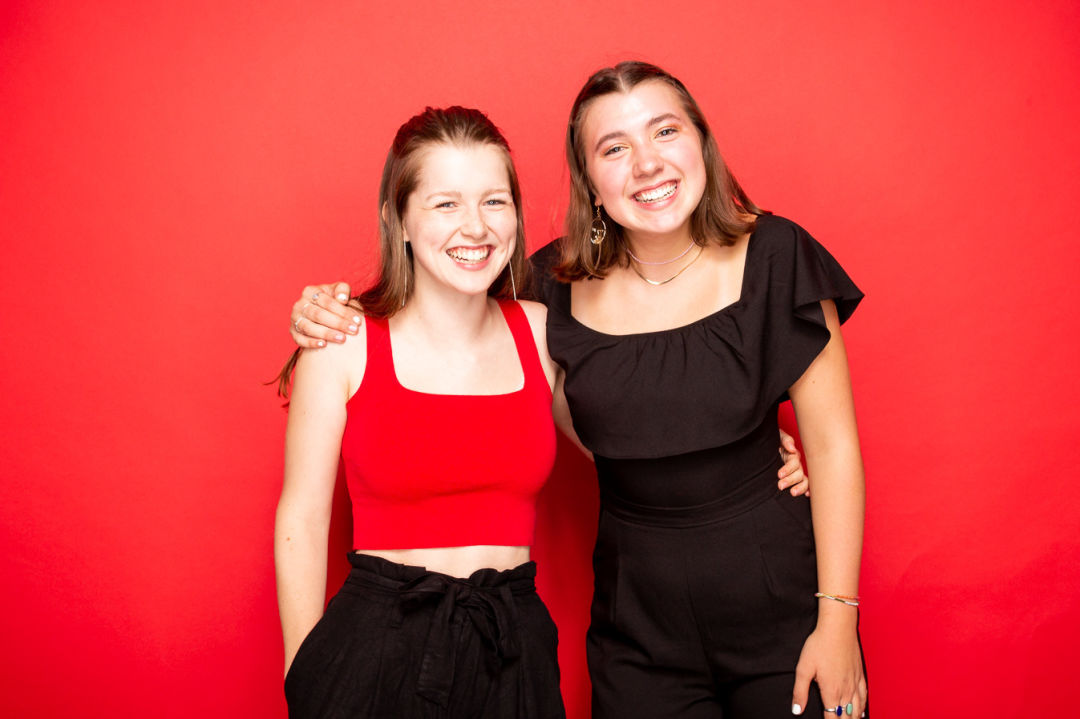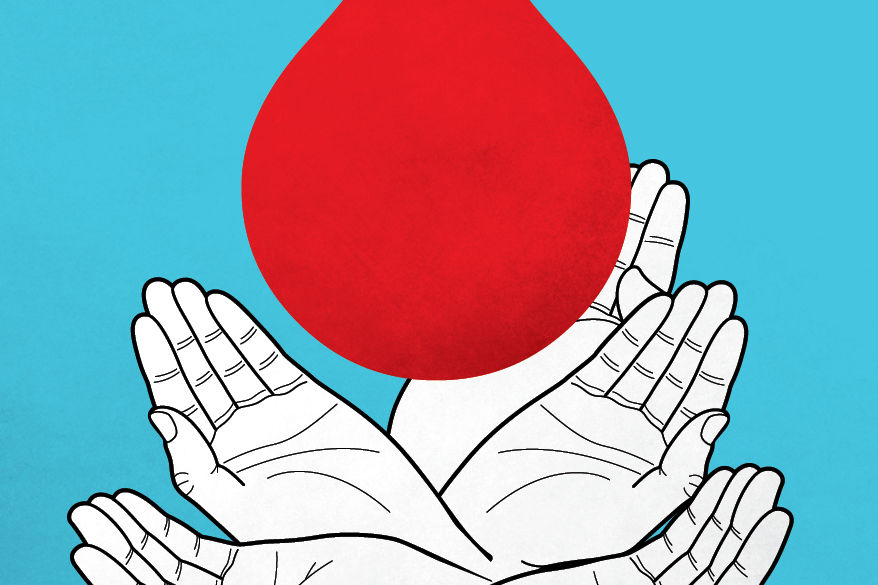How a Group of Portland Teens Scored a Huge Victory for Menstruation

Abby Rice (left) and Chloe Knott
Image: period.org
Abby Rice and Chloe Knott can pinpoint their menstrual education to a single day, in the library, in the fifth grade—long before either girl had started her period, or even knew what a period was. Now 17, Rice is still not totally confident about using menstrual pads. And the first time Chloe Knott, 15, tried to use a tampon, she sat on the bathroom floor at 4 a.m. and went through 12 tampons in preparation for a bleary-eyed, 6 a.m. swim meet.
Concerned about this educational deficit, Rice and Knott joined the Grant High School chapter of Period, a youth-run nonprofit founded by two Catlin Gabel students in 2014, which aims to remove period stigma and address equity issues, while distributing product to those in need through one of Period’s 220 established chapters around the world.
In spring of 2018, Rice and Knott were part of the group that went to the school board and asked for $25,000 to provide menstrual product to each of its 7,000 menstruating students. (Efforts to get products throughout PPS were also headed by GHS chapter founder Nika Bartoo-Smith, Kate Petralia, Zoe Shaw, Sadie Thorburn, and Emma Salada.) Remarkably, after several semesters of prior effort, the board said yes. We chatted with them about how it all happened.
PPS approved funding for menstrual products in all nine high schools. How’d we get here?
AR: We started with a trunk full of tampons, basically.
CK: [In January] we got bins and put them in every single bathroom [at GHS]. We tracked data, which meant counting how many tampons and pads were being used. But by March or April, the product we started with was running out. So then, Period club created a survey that was like, "What’s your gender? When do you use menstrual products? Why do you use them?" And then there was a comments section.
AR: The comments section was what really put us over the edge with PPS.
CK: Some of the comments were like, “I can come to school now because there are products I can use.” Stuff like that.
AR: We presented the comments, the survey, and the budget as a cohesive thing to the Finance Board, and they were like, “Sure!” And we were like—
CK: No way.
Is Period more than just a checkbox for college applications?
CK: Someone was like, “You’re doing such incredible work!” And I was like, “Oh! This is just my club.” I’m not doing it for anything—well, I’m doing it for getting menstrual products and education to young girls, but I’m not doing it for college. That’s just not my angle. I could literally live in my house with my parents for the rest of my life if I could get this done.
AR: It sounds dumb, but I got to high school and realized people have stuff going on in their lives that’s not anything like mine. I’m white, my parents have jobs, we have two cars, we have food every night. Realizing that these are not givens, I felt like I had to do something.
Tell me about the extent of your sex ed.
AR: We watched a video in the library in fifth grade that was like: “All right, you’re going to get your period.” Here’s this big huge pad that’s eight inches long and two inches thick. “You put it in your underwear!” And I knew you put it in your underwear, but I didn’t know where in your underwear, and I kinda still don’t know. But I’d put it all the way in the back, or all the way in the front, or sometimes would use two.”
So what did you do when you got your period?
AR: Well, our teacher told us in the library thing that when she got hers, she thought she had sat on a strawberry. So when I got mine, I texted my friend and I was like, “I sat on a strawberry.” And my friend was like, “Abby, what?” And I was like, “I. SAT. ON. A. STRAWBERRY.” And my friend was like, “Abby, what on earth are you talking about?”
Can a boy join Period?
AR: Yes. Absolutely.
CK: We would lock the doors so he couldn’t leave! [Laughs]
AR: In the past, the only men have been boyfriends of girls in the meeting. Which is frustrating, in a way, but they are still there, they are still learning. Maybe they don’t pay attention, but I would like to think that they are. Even though it’s horrible, people listen to men.
So what’s next?
CK: We are going into fourth and fifth grade classrooms to talk about periods with small, young menstruators so they can see teenagers and high schoolers, who they hopefully look up to, and just be like, “Hey, it’s something that happens, and it’s going to be OK.”
AR: Making it a thing you do in secret, behind doors, with other women, makes it this thing that’s hugely stigmatized. Not only is there the aspect of providing product, but there’s the huge education aspect that is really important. Like, when I learned about it, they didn’t really tell us what it was, so I thought you were literally peeing blood for a week.
Last thing: What do adults misunderstand about young women?
AR: Well, lots.
CK: So much. There was this fundraiser last year that Abby and I ran. We sold coffee and hot chocolate in the morning, and one of the security guards, who was a macho dude, walked up and was like, “Oh, what are you guys supporting?” And we were like, “Period club!” And he looked surprised.
AR: And he was like, “You mean, like, with blood?”
CK: And we were like, “Yup."
Editor’s Note: an earlier version of this story failed to note the work of other members of Grant’s Period chapter.




